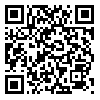Volume 11, Issue 2 (Mar & Apr 2021)
J Research Health 2021, 11(2): 95-104 |
Back to browse issues page
Download citation:
BibTeX | RIS | EndNote | Medlars | ProCite | Reference Manager | RefWorks
Send citation to:



BibTeX | RIS | EndNote | Medlars | ProCite | Reference Manager | RefWorks
Send citation to:
Soltani F, Meshkati Z. The Role of Cultural Intelligence on Self-esteem and Family Conflict Resolution Among Athletes. J Research Health 2021; 11 (2) :95-104
URL: http://jrh.gmu.ac.ir/article-1-1719-en.html
URL: http://jrh.gmu.ac.ir/article-1-1719-en.html
1- Department of Motor Behavior, Faculty of Physical Education and Sport Sciences, Isfahan (Khorasgan) Branch, Islamic Azad University, Isfahan, Iran.
2- Department of Motor Behavior, Faculty of Physical Education and Sport Sciences, Isfahan (Khorasgan) Branch, Islamic Azad University, Isfahan, Iran. ,zmeshkati@gmail.com
2- Department of Motor Behavior, Faculty of Physical Education and Sport Sciences, Isfahan (Khorasgan) Branch, Islamic Azad University, Isfahan, Iran. ,
Abstract: (3857 Views)
Background: Regarding the importance of resolving family problems in athletic progress and identifying the underlying factors, the purpose of this study was to investigate the role of cultural intelligence on self-esteem and family conflict resolutions among athletes.
Methods: The research method was correlational analytic and the research society included all married athletes (both male and female) in different sport disciplines of individual and team sports from Shahin Shahr, Isfahan. For this purpose, 180 athletes responded to the research questionnaires using the available sampling method, and finally, 179 questionnaires were analyzed. The research tools were the Cultural Intelligence Questionnaire designed by Erlie & Ange (2004), Cooper Smith’s Self-Esteem Questionnaire (1967), and Rahim’s Family Conflict Resolution Questionnaire (2003). Data were analyzed using SPSS V. 23 and AMOS V. 22 software.
Results: The results showed that the only relationship between self-esteem and the motivational dimension of cultural intelligence was significant (p<0.05). Besides, the relationship between cultural intelligence and its dimensions, except for the behavior dimension with family self-esteem was significant (p<0.05). Furthermore, the relationship between cultural intelligence and its dimensions with the styles of family conflict resolution was significant (p<0.05). The results of structural equation modeling also showed that the model of the relationship between cultural intelligence with self-esteem and the styles of family conflict resolution in athletes had a good fit.
Conclusion: Cultural intelligence plays a role in the self-esteem and resolution of athletes’ family conflicts.
Methods: The research method was correlational analytic and the research society included all married athletes (both male and female) in different sport disciplines of individual and team sports from Shahin Shahr, Isfahan. For this purpose, 180 athletes responded to the research questionnaires using the available sampling method, and finally, 179 questionnaires were analyzed. The research tools were the Cultural Intelligence Questionnaire designed by Erlie & Ange (2004), Cooper Smith’s Self-Esteem Questionnaire (1967), and Rahim’s Family Conflict Resolution Questionnaire (2003). Data were analyzed using SPSS V. 23 and AMOS V. 22 software.
Results: The results showed that the only relationship between self-esteem and the motivational dimension of cultural intelligence was significant (p<0.05). Besides, the relationship between cultural intelligence and its dimensions, except for the behavior dimension with family self-esteem was significant (p<0.05). Furthermore, the relationship between cultural intelligence and its dimensions with the styles of family conflict resolution was significant (p<0.05). The results of structural equation modeling also showed that the model of the relationship between cultural intelligence with self-esteem and the styles of family conflict resolution in athletes had a good fit.
Conclusion: Cultural intelligence plays a role in the self-esteem and resolution of athletes’ family conflicts.
Type of Study: Orginal Article |
Subject:
● Psychosocial Health
Received: 2019/01/19 | Accepted: 2019/11/24 | Published: 2021/04/1
Received: 2019/01/19 | Accepted: 2019/11/24 | Published: 2021/04/1
| Rights and permissions | |
 |
This work is licensed under a Creative Commons Attribution-NonCommercial 4.0 International License. |









